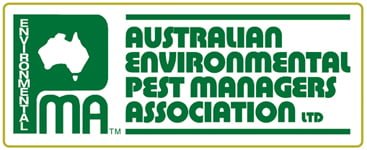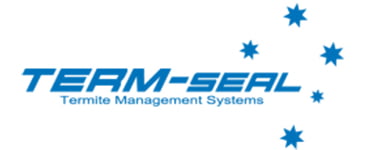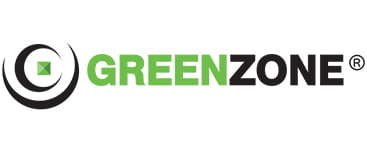As a homeowner in Melbourne, dealing with pests can be a real headache. Whether it’s ants invading the kitchen, termites munching on your wooden structures, or cockroaches taking up residence in your bathroom, pests can cause significant damage and create unsanitary living conditions if left unchecked.
When it comes to addressing pest problems, you have two main options: do-it-yourself (DIY) pest control or hiring residential pest control services. Both approaches have advantages and drawbacks, and the best choice will depend on your home’s specific circumstances and the nature of the pest infestation.
In this blog post, we’ll take a closer look at the pros and cons of DIY versus professional pest control, helping you decide which option is the most suitable for your Melbourne property.
Understanding Pest Control Needs
Melbourne is home to a variety of pests, including rodents, termites, ants, spiders, and cockroaches. Each season brings its own set of challenges, such as increased rodent activity in winter or termite infestations in warmer months. These pests can cause substantial damage to property and pose health risks, making effective pest control a necessity.
DIY Pest Control
Overview of DIY Methods
DIY pest control includes home remedies and natural solutions, over-the-counter products like sprays, traps, and baits, as well as preventive measures. Regular maintenance, such as sealing entry points and maintaining cleanliness, can also help prevent pest infestations.
Advantages of DIY Pest Control
- Cost-Effectiveness:
DIY methods are generally cheaper than professional services. - Immediate Availability:
Solutions and products are readily available at local stores. - Control Over Methods:
Homeowners can choose their preferred methods and products.
Disadvantages of DIY Pest Control
- Limited Effectiveness:
DIY methods may not be sufficient for severe infestations. - Safety Concerns:
Misuse of chemicals and traps can pose risks. - Time-Consuming:
Continuous effort is required to maintain pest-free conditions. - Lack of Expertise:
Homeowners may lack the knowledge to handle complex pest issues.
Professional Pest Control
Overview of Professional Services
Professional pest control services include thorough inspections, customised treatment plans, and follow-up maintenance. These pest control services are designed to address the root cause of infestations and provide long-term solutions.
Advantages of Professional Pest Control
- Expertise and Experience:
Professionals have the knowledge to tackle various pests effectively. - Comprehensive Solutions:
Tailored treatment plans ensure thorough pest eradication. - Advanced Products:
Access to more effective and safer products and equipment. - Long-Term Prevention:
Ongoing maintenance helps prevent future infestations.
Disadvantages of Professional Pest Control
- Higher Cost:
Professional pest control services are more expensive than DIY options. However, they have the expertise and ability to handle any infestation, which makes money worth spending on professional services. - Scheduling:
Availability of services may require booking. - Dependence:
Homeowners rely on external providers for pest control solutions.
Comparative Analysis: DIY vs. Professional Pest Control
Effectiveness and Efficiency
Professional services are more effective and efficient in dealing with severe infestations than DIY methods, which offer only temporary relief.
Cost Comparison
Due to repeated treatments, DIY methods are cheaper upfront but may incur more costs in the long run. Professional services, although expensive initially, provide lasting results.
Safety and Health Considerations
Professional pest control ensures the safe and regulated use of chemicals, minimising health risks. DIY methods, if improperly handled, can pose significant safety hazards.
Long-Term Prevention and Control
Professional services offer comprehensive long-term solutions, whereas DIY methods often require continuous effort and vigilance.
Convenience and Time Investment
DIY pest control can be time-consuming, while professional services save time and effort for homeowners.
Situational Suitability
For minor pest issues, DIY methods may suffice. However, for severe infestations or specific pests like termites, professional intervention is recommended.
Do’s and Don’t When You Notice Pest Infestation in Home
In this comprehensive guide, we’ll explore the dos and don’ts of pest control, helping you confidently navigate the process and ensure a pest-free living space.
DO’s:
- Identify the Problem:
The first step for effective pest control is pinpointing the type of pest you’re dealing with. This will help you in choosing the appropriate treatment and prevention methods. - Address the Source:
Pests often thrive in environments that provide them with food, water, and shelter. Identify and address the source of the problem by eliminating these attractants. - Act Quickly:
The sooner you address a pest infestation, the better. Pests can reproduce quickly, and a small problem can quickly escalate into a major issue. Take action to prevent the problem from worsening. - Use Integrated Pest Management (IPM):
IPM is a comprehensive approach that is employed to address the root cause of the problem and minimise the use of harmful pesticides. - Consult Professionals: It’s best to leave everything to professional services for severe or persistent infestations.
DON’Ts:
- Don’t Use Excessive Pesticides:
Overusing or improperly applying pesticides can be detrimental to your health and the environment. Stick to the recommended dosage and use only when necessary. - Don’t Attempt DIY Treatments for Complex Infestations:
While DIY methods can be good for minor issues, complex or widespread infestations may require the expertise of professional exterminators. - Don’t Neglect Preventive Measures:
Pest control is not just about treating an existing problem; it’s also about being proactive to prevent future infestations. Maintain a clean and well-organised home, regularly inspect for signs of pests, and implement effective prevention strategies. - Don’t Delay Seeking Professional Help:
If the infestation persists or seems to be getting worse despite your efforts, don’t hesitate to call in professional pest control services.
Ultimately, the decision between DIY and professional pest control for your Melbourne home will depend on the infestation’s severity, budget, and personal preferences. For minor pest problems, DIY methods may be a suitable and cost-effective solution. However, for more complex or persistent infestations, hiring Spider Pest Control Melbourne is generally the safer and more reliable option to ensure the problem is effectively and permanently resolved.













